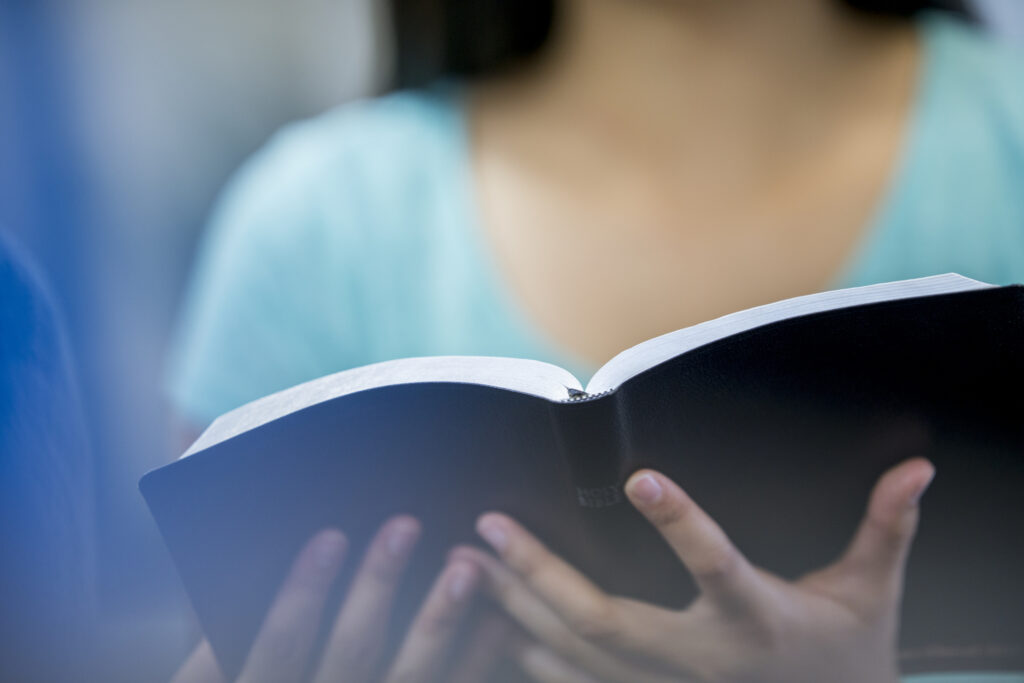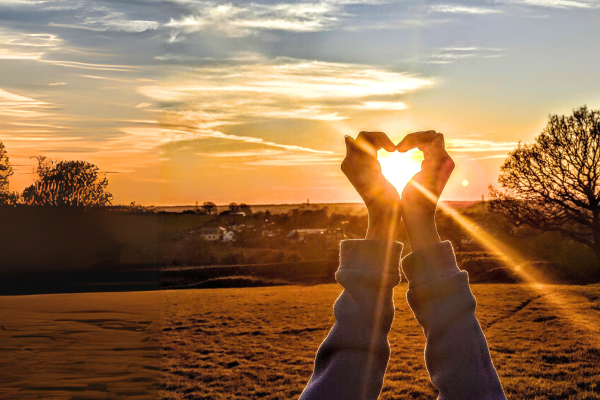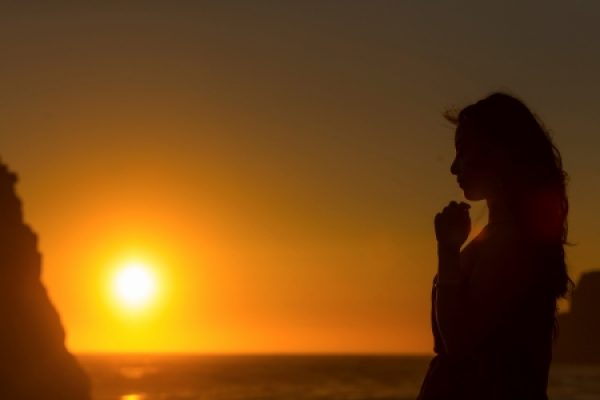You are racing to catch the last flight out to an urgent destination; you manage to board just as they close the gate. Ne’ilah — the service at the close of Yom Kippur — can feel like that. Your High Holidays can also run by in a mad dash. At the last moments of Yom Kippur, as you stand before the opened ark, you may feel as if the gates of prayer will shut before you’ve expressed your deepest prayers. However, you can choose to approach the gates of prayer in a new way. It requires getting your prayers for the new year ready and deciding how you’ll affirm your prayers with your life.
Shema Koleinu
Hear our voice
Meditation:
May I praise those with whom I live or work for the blessing of who they are and what they do.
May I thank them for the specific ways they’ve enriched and guided me.
May I ask them for precisely what I need now and in the years to come.
May we forgive each other, initiating conversations that clear the air.
May I put the prayers of my heart into action each day.
May I praise those with whom I live or work for the blessing of who they are and what they do.
May I thank them for the specific ways they’ve enriched and guided me.
May I ask them for precisely what I need now and in the years to come.
May we forgive each other, initiating conversations that clear the air.
May I put the prayers of my heart into action each day.
Ritual:
Beginning on Rosh Hashanah and continuing each day before Yom Kippur, devote the time you need to discovering your own prayers. Let these four traditional kinds of prayer inspire you:
Beginning on Rosh Hashanah and continuing each day before Yom Kippur, devote the time you need to discovering your own prayers. Let these four traditional kinds of prayer inspire you:
Hallel/Praise: What wonders and miracles, both large and small, cause you to give praise this year?
Hoda’ot/Thanks: What opportunities, relationships, gifts, ideas, even setbacks, make you thankful this year?
Bakashot/Requests: What do you need real help in this year? Love, health, energy, stability, change, finding meaning?
Selikhot/Forgiveness: What are you willing to pardon others for this year? What promises can you offer and make good on?
Hoda’ot/Thanks: What opportunities, relationships, gifts, ideas, even setbacks, make you thankful this year?
Bakashot/Requests: What do you need real help in this year? Love, health, energy, stability, change, finding meaning?
Selikhot/Forgiveness: What are you willing to pardon others for this year? What promises can you offer and make good on?
Practice your prayers, reviewing the ways you can affirm them with your life. If you wish, put your prayers and your commitments in writing to affirm them and bring them to synagogue during the High Holidays. Now, when you hear the final bast of the shofar, you’ll be ready for a new year.
Blessing:
(Whenever you have taken the time to prepare your prayers)
Barukh atah Adonai shomei’a tefilah.
Blessed is the One who hears our prayers.
Teaching:
Rabbi Eleazar said: Always prepare your prayer, rehearsing it, practicing it with your life. Then say it. Rabbi Abba said: Rabbi Eleazar’s teaching is especially applicable to the prayers we say on Rosh Hashanah and Yom Kippur.
Rabbi Eleazar said: Always prepare your prayer, rehearsing it, practicing it with your life. Then say it. Rabbi Abba said: Rabbi Eleazar’s teaching is especially applicable to the prayers we say on Rosh Hashanah and Yom Kippur.
(Adaped from the Babylonian Talmud: Rosh Hashanah 35a)
What does it mean to live out your prayers with your life?
If your prayers are full of praise for the sun, moon, and stars, you would pay attention to the nighttime sky. You’d work to preserve the atmosphere, you’d study astronomy, celebrate the New Moon, and wear sunscreen.
If you are thankful for health, you would do your part to preserve or improve it. You would exercise, eat right, seek caregivers with the greatest wisdom. You would celebrate all the parts of your body that work well each day.
If your request is for peace, you would do your part to establish it in all the worlds you inhabit.
If your prayer is for forgiveness, you would resolve the lawn mower incident with your neighbor, you’d write a letter and forgive your senators for what they didn’t do in the past year, and you would tell them what they must do now.
If your prayers are full of praise for the sun, moon, and stars, you would pay attention to the nighttime sky. You’d work to preserve the atmosphere, you’d study astronomy, celebrate the New Moon, and wear sunscreen.
If you are thankful for health, you would do your part to preserve or improve it. You would exercise, eat right, seek caregivers with the greatest wisdom. You would celebrate all the parts of your body that work well each day.
If your request is for peace, you would do your part to establish it in all the worlds you inhabit.
If your prayer is for forgiveness, you would resolve the lawn mower incident with your neighbor, you’d write a letter and forgive your senators for what they didn’t do in the past year, and you would tell them what they must do now.
(CLAL Faculty)
Reprinted with permission from The Book of Jewish Sacred Practices: Clal’s Guide to Everyday & Holiday Rituals & Blessings, edited by Rabbi Irwin Kula and Vanessa L. Ochs, Ph.D., Jewish Lights, 2001.












